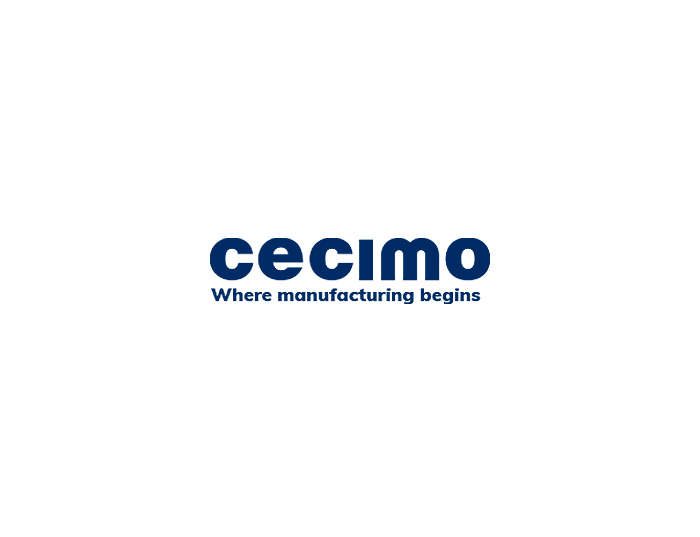CECIMO position paper on the EC communication “Building a European data economy”

CECIMO, the European Association of the Machine Tool Industries, welcomes the European Commission’s communication “Building a European data economy”, as it puts connectivity and production technologies at the forefront, and it foresees a dialogue with stakeholders aiming at exploring the possibility of an EU framework on access to machine-generated data. Yet, the industry underlines that non-legislative approaches, such as guidance on incentivizing business to share data with the help of sectorial representatives, should be prioritized before any legislative initiative. CECIMO reminds that premature legislation can put severe barriers against new business models as the manufacturing business is transformed rapidly and innovation cycles are getting shorter to respond to fast-changing customer demands.
“It is positive to see that the Communication on data economy puts machine-generated data under the spotlight of EU-level discussions and emphasizes the great potential of the European mechanical engineering industry for a stronger data economy in the EU” states Filip Geerts, CECIMO Director General. CECIMO has recently been highlighting the potential of machine-generated data for the European advanced manufacturing industry and for the EU economy. The CECIMO enquiry conducted during the Rome General Assembly (November 2016) indicated that for most of the companies participating in the survey, data-driven business models will be the most prioritized over the next 10 years.
While the Commission’s recent communication on data economy makes extensive reference to machine-generated data and provides possible paths of action, the European machine tool industry stresses that a strict regulatory approach would not support the growth of European manufactures in the long run. To remain future-proof and technology-neutral, the industry rather needs a general framework as well as guidance creating awareness on access to and re-use of machine-generated data, without any detailed measures.
As the recent Communication summarizes, existing EU regulation mainly focusses on personal data and does not address the complexities of advanced manufactures in B2B sectors. CECIMO underlines that, currently, access to data generated by machines is defined by bilateral contracts between suppliers and users, that seem to be working sufficiently for now. In parallel, the amount and type of data collected from machine tools are increasing, which makes difficult to have a detailed picture of future business models. Therefore, a strict legislative approach would prevent manufactures from launching new business models and developing innovative solutions. “The machine tool sector is going through a rapid digital transformation. The industry is developing and investing in new business models together with customers. What is clear at this point is that machine tools are key enabler for other manufacturing sectors and provide enormous potential for a data-driven economy. Capturing and analyzing the data deriving from machine tools would generate clear benefits such as increased productivity, energy and resource-efficiency, for the entire European manufacturing base” points out Mr Geerts.
The European framework on machine-generated data should also pay particular attention to manufacturing SMEs and make sure that lock-in situations for SMEs are avoided. SMEs that form the backbone of Europe’s manufacturing (80% of the European machine tool industry is composed of SMEs) require practical guidelines, training and exchange of best practices to facilities their involvement in the new business models. To this end, identification and dissemination of best practices by forerunner manufacturers should be supported by public authorities, with the involvement of sectorial representatives.
CECIMO appreciates the initiative on free flow of data and the EU’s increasing intention to coordinate Member States’ regulatory and non-regulatory actions. Yet, the EU should play a stronger pivotal role and provide Pan-European principles to Member States, before they develop diverging local regulations and policy instruments that might block cross-border partnerships among industrial actors and cause varying security procedures in Europe. For many manufactures, issues surrounding data security procedures come as a condition for investing in data analytics. Taking into account the fact that the future of Europe’s manufacturing competitiveness will derive from connectivity among systems, the EU should assure that the cyberspace for the use of manufacturers is fully secured and harmonized. CECIMO also reminds that any initiative on free flow of data should be designed with a global vision, since every second machine tool exported in the world originates from Europe and more and more machines are connected at transnational level.
About CECIMO
CECIMO is the European Association of the Machine Tool Industries. We bring together 15 national associations of machine tool builders, which represent approximately 1500 industrial enterprises in Europe (EU + EFTA + Turkey), over 80% of which are SMEs. CECIMO covers 98% of the total machine tool production in Europe and about 39% worldwide. It accounts for more than 150,000 employees and a turnover of nearly €24 billion in 2015. More than three quarters of CECIMO production is shipped abroad, whereas half of it is exported outside Europe. For more information, visit 
# # #
For further information, contact:
Emir Demircan, EU Public Affairs Manager
emir.demircan(at)cecimo.eu
